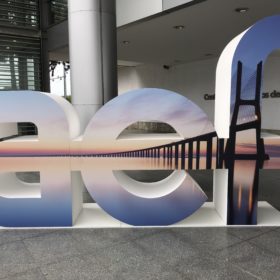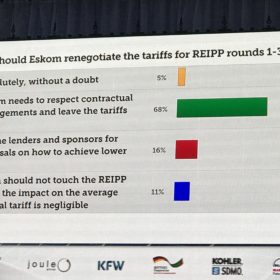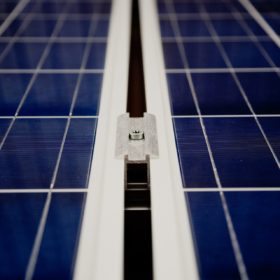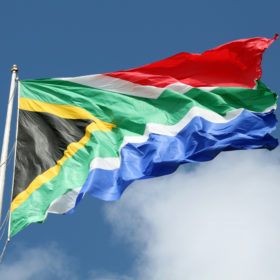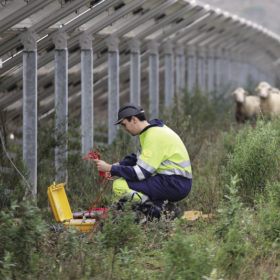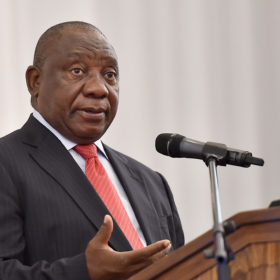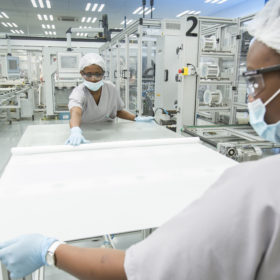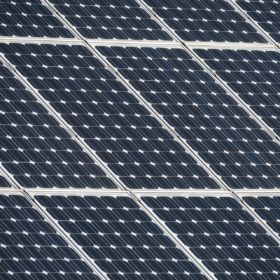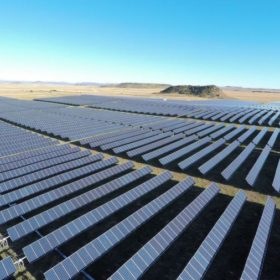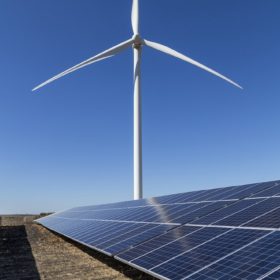Five takeaways from the Africa Energy Forum 2019
At the 21st AEF, held last week in Lisbon. pv magazine had two journalists on the ground and here reports on five key findings.
‘PPA deals signed under the opening three rounds of the REIPPPP must be renegotiated’
A representative of South Africa’s energy regulator said deals signed between 2011 and 2013 must be subject to lower tariffs to ease the financial crisis at national utility Eskom. The suggestion failed to convince delegates at an Africa Energy Forum panel discussion in Lisbon, however.
Reatile buys 20% stake in Juwi’s South African unit
The buyer has not disclosed how much it invested in the subsidiary of German EPC contractor Juwi, which is building four PV power plants with 250 MW of total generation capacity under the nation’s Renewable Energy Independent Power Producer Program.
Globeleq acquires 53 MW solar portfolio in South Africa
Globeleq bought the solar plants — which are part of a bigger portfolio that includes wind farms — from an affiliate of Brookfield Asset Management. It said that in the coming weeks it will also reach financial close on another 66 MW solar installation, pushing the PV portion of the acquired portfolio up to 119 MW. It currently holds 238 MW of combined solar and wind capacity in South Africa.
Solar, EVs and energy storage among the few technologies keeping pace with energy transition goals
Among 45 critical energy technologies and sectors assessed in a tracking report by the International Energy Agency, only seven are keeping hopes alive that climate, energy access and air pollution goals can be met.
South Africa’s carbon tax could lift its PV industry
The nation appears ready to join the ranks of global solar protectionists but any fears about its energy transition may be dampened by the introduction of one of the world’s first true carbon levies – provided emitters are not afforded too many loopholes.
ARTsolar: ‘South Africa must preserve its solar module industry’
In a series of statements to pv magazine, South African panel manufacturer ARTsolar has explained why it recently filed a petition to request the introduction of import tariffs on solar modules from other countries. The company claims such a measure is needed to save real jobs and retain the technological expertise of the country’s PV industry.
South Africa considers petition calling for tariffs on imported solar modules
The complaint was submitted to the country’s International Trade Administration Commission by domestic module maker ARTsolar, which points out South Africa does not have anti-dumping duties to protect its manufacturers.
African nations could install 30 GW by 2030: BSW-Solar
A new report analyzing 10 solar markets throughout Africa claims that the continent’s PV market could expand from about 5 GW at present to up to 30 GW by the end of the next decade.
An argument for renewables, and for a new utility paradigm
In late January 2019, California’s largest investor-owned utility Pacific Gas and Electric (PG&E) declared bankruptcy for the second time, causing anxiety for investors, ratepayers, employees, PPA holders, elected government officials and, lest we forget, fire and gas explosion victims. Judge Alsup, who is overseeing PG&E’s probation from its felony conviction, lambasted the company for violating its probation. “To my mind, there’s a very clear-cut pattern here: that PG&E is starting these fires,” Alsup said. “What do we do? Does the judge just turn a blind eye and say, ‘PG&E continue your business as usual. Kill more people by starting more fires.”
